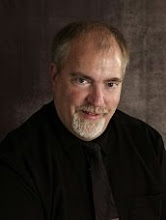Modern science

Later this afternoon, the Senate is expected to force President Bush to issue his first veto. The legislation about to cross his desk would authorize expanded federal funding for embryonic stem cell research. Contrary to popular opinion, Bush has not banned all scientific research with such stem cells; rather, he has limited funding to only those stem cell lines already in existence. The bill’s supporters imply that embryonic stem cells hold the key to curing Parkinson’s disease, healing spinal injuries and paralysis, cancer, and a host of other ailments. The president, however, sees the bioethical question very clearly. If experimentation is allowed on the frozen embryos in a fertility clinic that are only going to be disposed of anyway, doesn’t that cheapen human life? Even to speak of them as “disposable” is offensive. And what will be the next demand for the insatiable death brigade? To allow intentional creation of embryos for the sole purpose of research? Or, if some cure is found, to have “farmers” creating a supply of embryos as if human beings were no more valuable than laying hens?
UPDATE: President Bush did, in fact, veto the bill. Most people think that stem cell research has been banned by the president, when the reality is that this bill would have expanded federal funding for it. Nothing is stopping the free enterprise system and the pharmaceutical companies from pursuing the R & D if they think it's going to provide miracle cures for everyone.
Embryonic stem cell research has produced nothing beneficial. The Korean scientist who claimed success was exposed to be a fraud. The use of adult stem cells, on the other hand, actually shows promise of medical benefit. Why, then, are so many legislators and advocates so insistent on promoting the embryonic agenda? Could it be that the entire abortion industry relies on convincing the public that life does not begin at conception, and that the unborn human is not really anything more than a blob of cells? Here is a good link to The Center for Bioethics and Human Dignity’s web site. Do a little reading in there before going on.
A scientist’s worldview will be reflected in his approach to research and investigation. Prior to the Enlightenment, most scientific discovery was typical of the Protestant Christian worldview, namely, that God has created the universe and everything in it, and scientific inquiry is a way to discover more and more truth about the awesome power and wisdom of the Creator. However, most modern scientific inquiry (or, as Schaeffer puts it, “modern modern science”) today starts with the presupposition that God does not exist, and that everything we see is simply the result of natural selection and chance evolution. Because of this, so much of the godless scientist’s understanding of the universe remains shrouded in “mystery,” and developing human life is seen as a tool to harvest and exploit.
In the comment section, defend the proposition that modern science was born out of a Christian worldview, as expressed in chapter 7 of How Should We Then Live?


<< Home